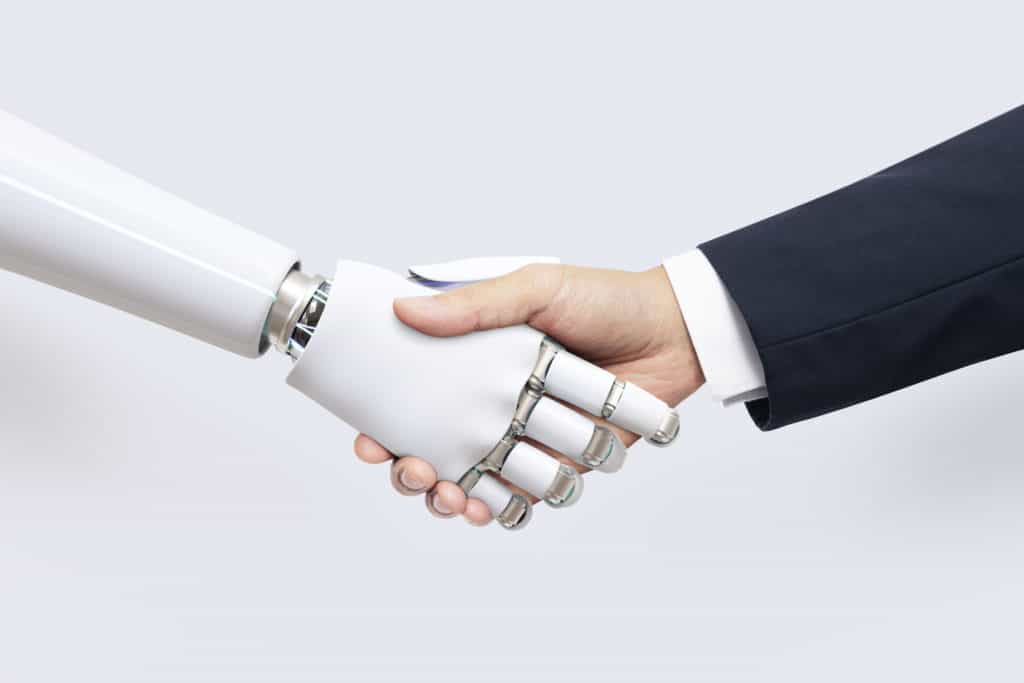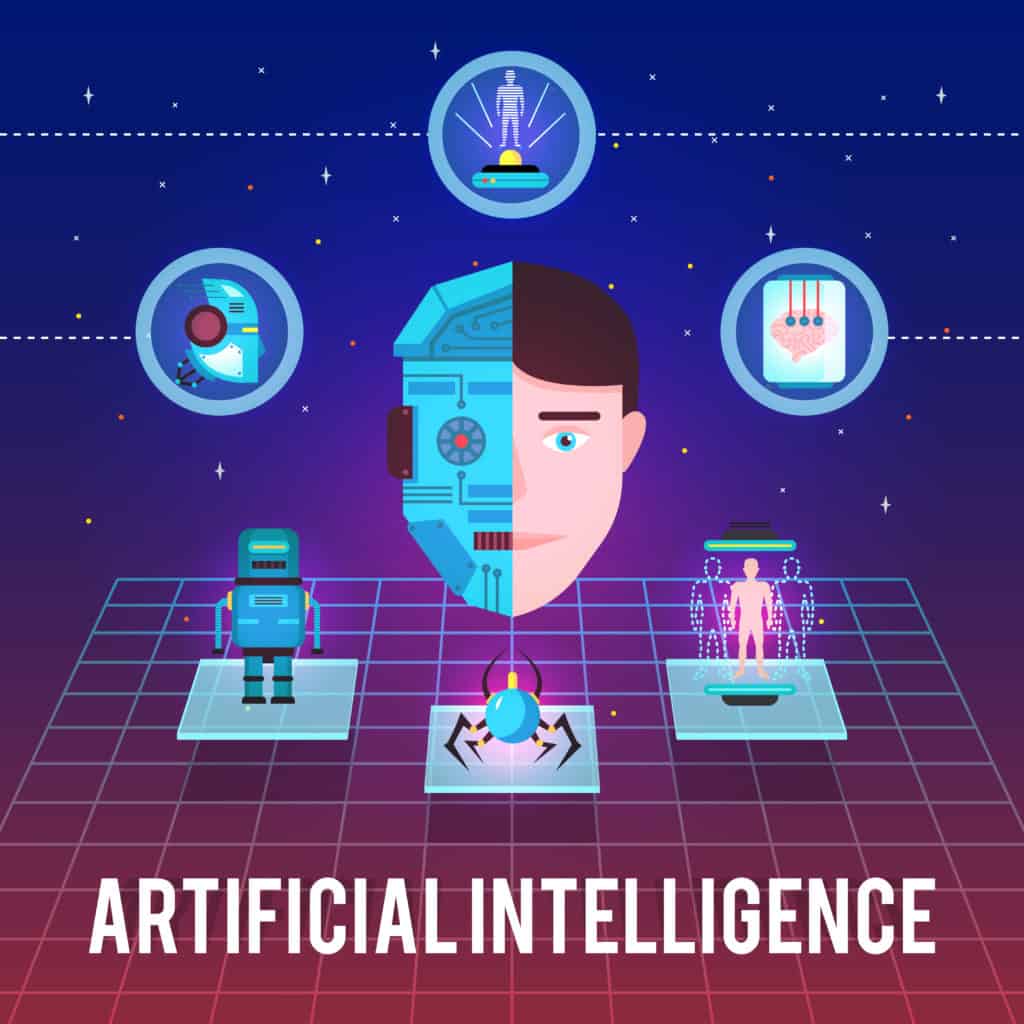In this digital age, where information is so accessible and transactions are extremely fast-paced, organisations that do not utilise cutting-edge technologies to drive their processes face the risk of being left out. Artificial intelligence (AI) is one of the aforementioned technologies, and it is part and parcel of our lives today, transforming the way we live and work.
What is Artificial Intelligence?
From AI-driven search engines to autonomous vehicles, the demand for artificial intelligence is growing every day. Artificial intelligence can be defined as the process whereby machines, such as computer systems, are capable of performing tasks that typically require human intelligence. This includes learning, reasoning, and self-correction to drive processes.
Data Science and Artificial Intelligence
There is some overlap between data science and artificial intelligence which may lead to confusion.
Data science can be defined as a study to analyse data and processes in an effort to derive meaning out of them. Basically, data professionals use a combination of tools such as algorithms, software, and principles to bring meaning to a set of data. The information gathered, as a result, is then used to drive business decisions, improve business processes and organisational effectiveness, anticipate potential risks and opportunities.
Learn more about Data Science Course in Malaysia.
Artificial intelligence, on the other hand, enables machines to “think” and execute reasoning by replicating human intelligence such as visual perception, speech recognition, and language translation. Through experience and the process of trial-and-error, artificial intelligence gives machines the capability to formulate inferences. Therefore, it is a tool that helps data professionals to get the results and solutions for specific problems. However, to do so, it is extremely crucial to provide these machines with the right information and data.

The Importance of Artificial Intelligence in Malaysia
As the world evolves to become more virtual, artificial intelligence is an essential tool to ensure that organisations in Malaysia remain competitive in the global marketplace. Countries like the US, China, and South Korea have robust and dynamic AI ecosystems, enabling them to be the driving force behind the world’s economy. Therefore, developing artificial intelligence in Malaysia opens up better opportunities to collaborate and partner with these global powers.
Regardless of the industry, artificial intelligence has a lot to bring to the table in terms of the advantages it offers to business owners – both big and small. It can help to produce better products and services, identify problems and mitigate risks, understand consumer behaviours, make better decisions on product and services innovations, sales and marketing.
The Emergence of Artificial Intelligence in Malaysia
The continuous advancement of artificial intelligence in Malaysia is evidence that more companies have realised the importance of incorporating AI into their organisational processes. Across various industries, it is becoming increasingly prominent and is used not only to improve an organisations’ internal processes but also to make products and services more appealing to consumers.
Clear evidence on the progress of artificial intelligence in Malaysia is the mass digitalisation of companies, accelerated during the Covid-19 pandemic period. The sudden need to shift from manual to automated processes meant that organisations that traditionally relied on physical and manual transactions had to adapt and integrate some form of technology and artificial intelligence into their digitalisation efforts. Cashless payments, chatbots, facial recognition, are amongst AI-powered tools that are commonly used today. The ability of companies like Grab and Foodpanda in expanding their services beyond just ride-sharing and delivery capabilities clearly show how artificial intelligence is fast becoming an essential tool for growth and sustainability for Malaysian organisations.
How Artificial Intelligence Helps Industries & Organisations
The integration of artificial intelligence in Malaysia has proven to be pivotal in delivering results to businesses today, including improving customer experiences, augmenting your workforce, and automating repetitive processes to increase productivity and efficiency.
Solve Problems
By applying artificial intelligence, businesses will be able to solve a myriad of problems that they might have struggled with previously. Identifying fraud, improving productivity, providing predictive analysis, automating repetitive processes, etc. are just a handful of what AI has to offer to organisations.
Discover New Opportunities
Artificial intelligence has also enabled organisations to identify business opportunities and venture into new markets. AI-powered customer relationship management (CRM) systems have enabled businesses to track their customers’ purchasing journey and ensure that their demands are met. Also, real-time insights enable organisations to detect emerging trends and devise marketing strategies accordingly.
Streamline Processes
Artificial intelligence will also enable organisations to improve their processes at different levels. This enables companies to be more effective in workforce management to focus on more crucial tasks and decision-making. Also, AI-based frameworks will reduce human errors and minimise wastage. Moreover, the artificial intelligence system will learn and get smarter as time progresses.

Industries in Malaysia That Have Benefitted from Artificial Intelligence
Globally and domestically, various industries and businesses have reaped the rewards of artificial intelligence’s continuous growth and development. Companies such as tech giants Google, Facebook, and Apple, are using AI-based systems and software to their advantage. In Malaysia, artificial intelligence has been incorporated across various industries, including:
Healthcare
Malaysia’s healthcare system has improved tremendously with the implementation of artificial intelligence. The Government has launched an AI-enabled stethoscope system which allows doctors and medical professionals to listen to heart and lung sounds with sophisticated amplification and filtering technology, leading to quicker and more precise diagnoses . These results are then analysed to build a personal biometric signature for individual patients. The technology platform that powers this cutting-edge device aided by artificial intelligence, further offers geo-tagging and environmental data analysis as part of its functions.
Retail
Due to the current pandemic, e-commerce platforms have seen a huge surge in usage and popularity. E-commerce platforms have infused artificial intelligence in their software and apps to learn consumer purchasing behaviour over time, which is then used to predict purchase preferences and recommend products and services that appeal to specific target consumers, at the right time. AI-powered chatbots are also actively used to improve customer service and reduce latency in addressing customers’ queries.
Banking
The convenience that e-payment functions provide has prompted banks in Malaysia to leverage artificial intelligence to simplify the payment process. Intelligent algorithms now enable online deposits, money transfers, etc. to be accessible almost anytime and anywhere. Artificial intelligence has also shown its worth in improving security by preventing fraudulent transactions. By analysing customers’ spending patterns and past transactions, bank systems are able to identify potential fraud by prompting an alert or verification process to be transmitted to the users.
The Importance of Artificial Intelligence in Malaysia’s Future
It is not an understatement in saying that artificial intelligence has a vital role to play in spearheading Malaysia’s future development. It will be working in conjunction with people, and not in place of people. Therefore, it is essential that there are skilled professionals with the skills and expertise needed to drive artificial intelligence in Malaysia.
There is a common misconception that artificial intelligence will replace the human workforce. On the contrary, its capability to improve work processes will open up more avenues and opportunities for organisations to explore, which might not have existed previously, making investment in artificial intelligence essential.


Comments are closed.